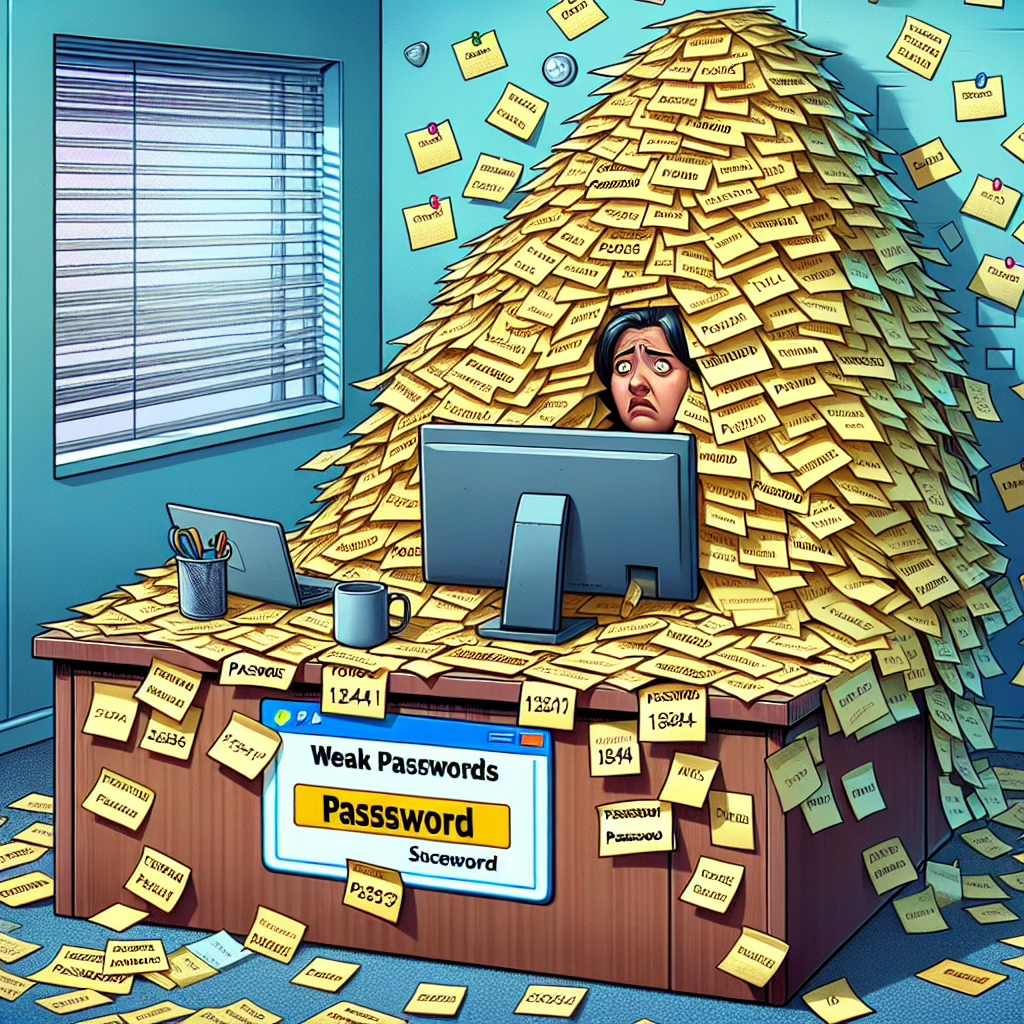Ah, weak passwords. The classic “123456” or “password”—the digital equivalent of leaving your front door wide open with a neon sign that says, “Please rob me!” In 2025, businesses still haven’t fully embraced the idea of strong password policies. It’s as if they’re playing a game of Russian roulette with their cybersecurity. Let’s dive into this puzzling phenomenon and uncover why weak passwords persist, the risks they pose, and some practical tips to reinforce security measures.
Why Are Businesses Still Using Weak Passwords?
Picture this: a bustling office where employees are juggling multiple tasks. They’re answering calls, sending emails, and oh yes, trying to remember all those pesky passwords. When faced with the choice between creating a secure password or using something easy to recall, many opt for the latter. Why? Because who has time for complexity when you’re just trying to remember which coffee shop you visited last week?
Moreover, some companies might think, “We’re too small to be targeted by hackers.” This mindset is akin to believing that locking your car doors isn’t necessary because you live in a quiet neighborhood. Spoiler alert: hackers don’t discriminate based on company size! They see opportunity wherever they can find it, and ignoring security can quickly lead to devastating consequences.
The Risks of Weak Passwords
Using weak passwords is like wearing a “kick me” sign in the digital world. Hackers thrive on easily guessable credentials, deploying tools that can crack these weak passwords faster than you can say “data breach.” In fact, studies show that over 80% of data breaches stem from poor password practices. That’s a staggering number! Imagine what you could do with that data instead—like launching a new product, building trust with customers, or actually getting some sleep!
Common Weak Passwords Still in Use
Let’s take a moment to appreciate the creativity (or lack thereof) behind common weak passwords. Variants of “password,” “123456,” and even “qwerty” continue to dominate the scene. It’s almost like a nostalgic throwback to the early days of the internet when we thought “letmein” was clever. Newsflash: it’s not!
Even worse, some still use their birthdays or pet names. While Fluffy might be adorable, he doesn’t need to be part of your security strategy! It’s crucial to understand that using easily obtainable personal information can lead to security breaches.
How to Strengthen Your Password Policies
If you’re ready to kick weak passwords to the curb (and we hope you are), here are some actionable tips that will help:
- Implement Password Managers: These handy tools can generate and store complex passwords for your team. No more sticky notes with login details stuck under keyboards!
- Enforce Strong Password Policies: Require employees to create longer passwords with a mix of letters, numbers, and symbols. Make it a fun challenge—who can create the most ridiculous password while still meeting security requirements?
- Regularly Update Passwords: Set up reminders for employees to change their passwords regularly. Think of it as a digital spring cleaning!
- Enable Two-Factor Authentication: Adding an extra layer of security can deter even the most persistent hackers. It’s like having a bouncer at your digital door.
The Benefits of Stronger Security
By moving away from weak passwords, businesses not only protect sensitive data but also foster a culture of security awareness among employees. When staff feel empowered and knowledgeable about cybersecurity measures, they become an integral part of the defense strategy.
Plus, strong security practices can enhance customer trust. After all, nobody wants to hand over their credit card information to a company that still uses “password” as its go-to security measure!
The Bottom Line
If businesses want to avoid becoming headline news for all the wrong reasons in 2025, it’s time to ditch those weak passwords once and for all. Embracing stronger password policies isn’t just about compliance; it’s about creating a safer digital environment for everyone involved.
So next time you’re tempted to use “123456,” just remember: your data deserves better! Let’s make weak passwords a thing of the past and push for a future where strong security becomes the norm.
What are your thoughts on this? Are you still using any questionable passwords? Share your insights in the comments below!
A big thank you to TechRadar for inspiring this discussion on weak password usage in businesses.

